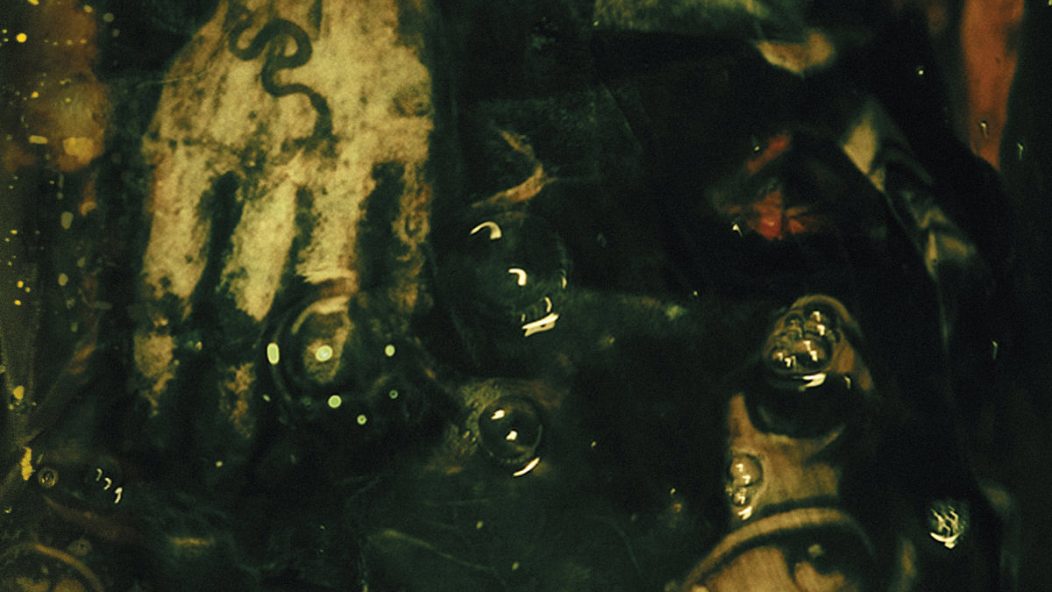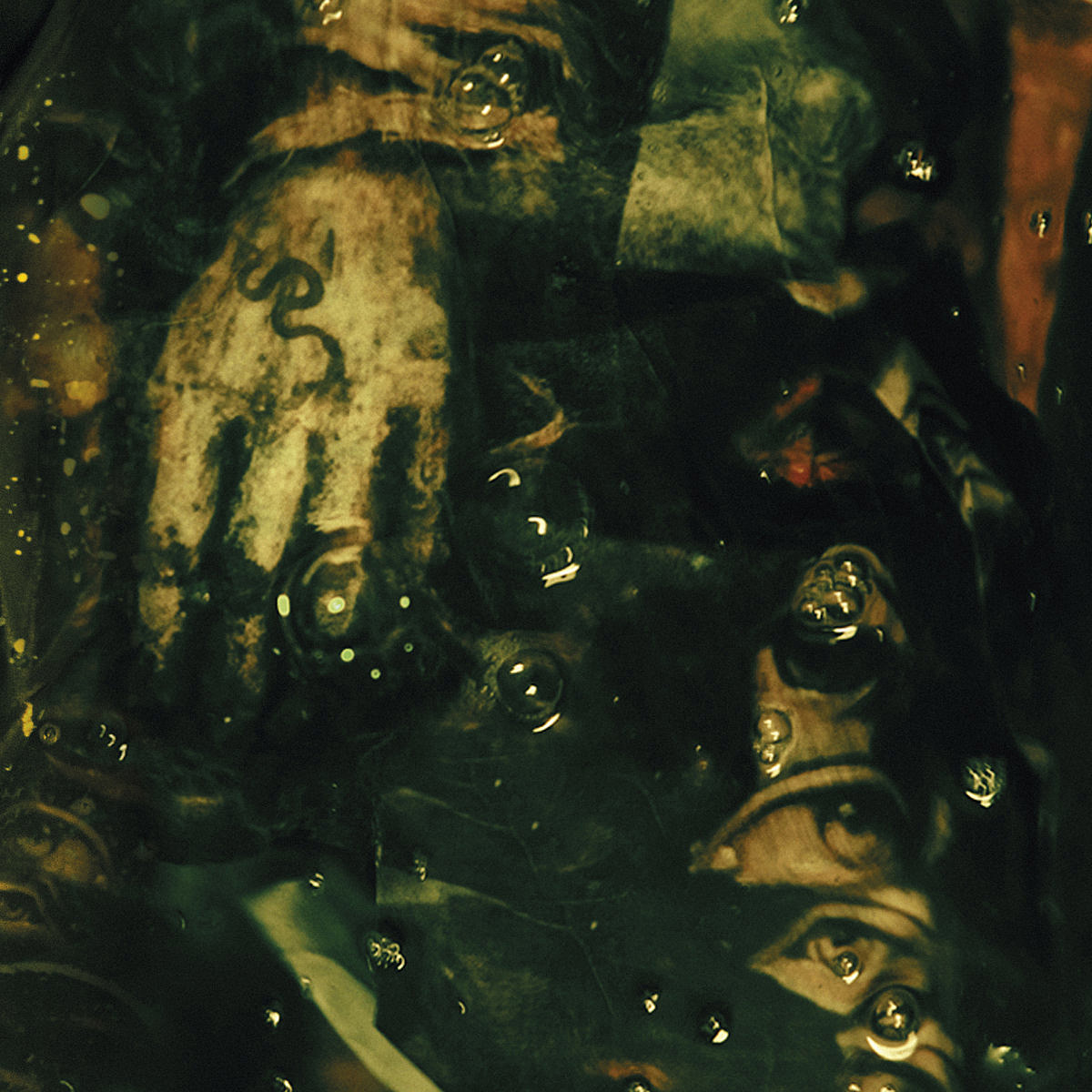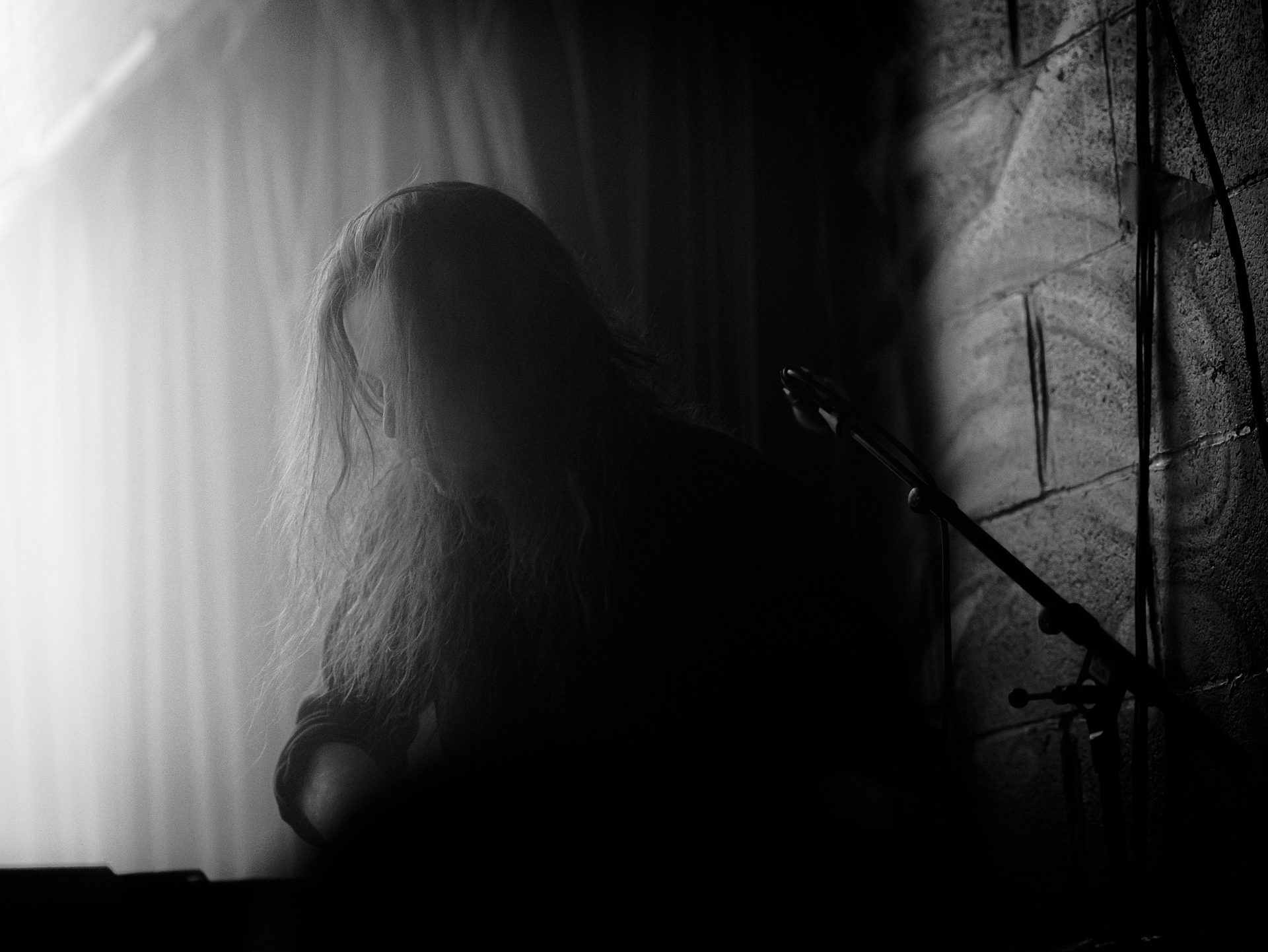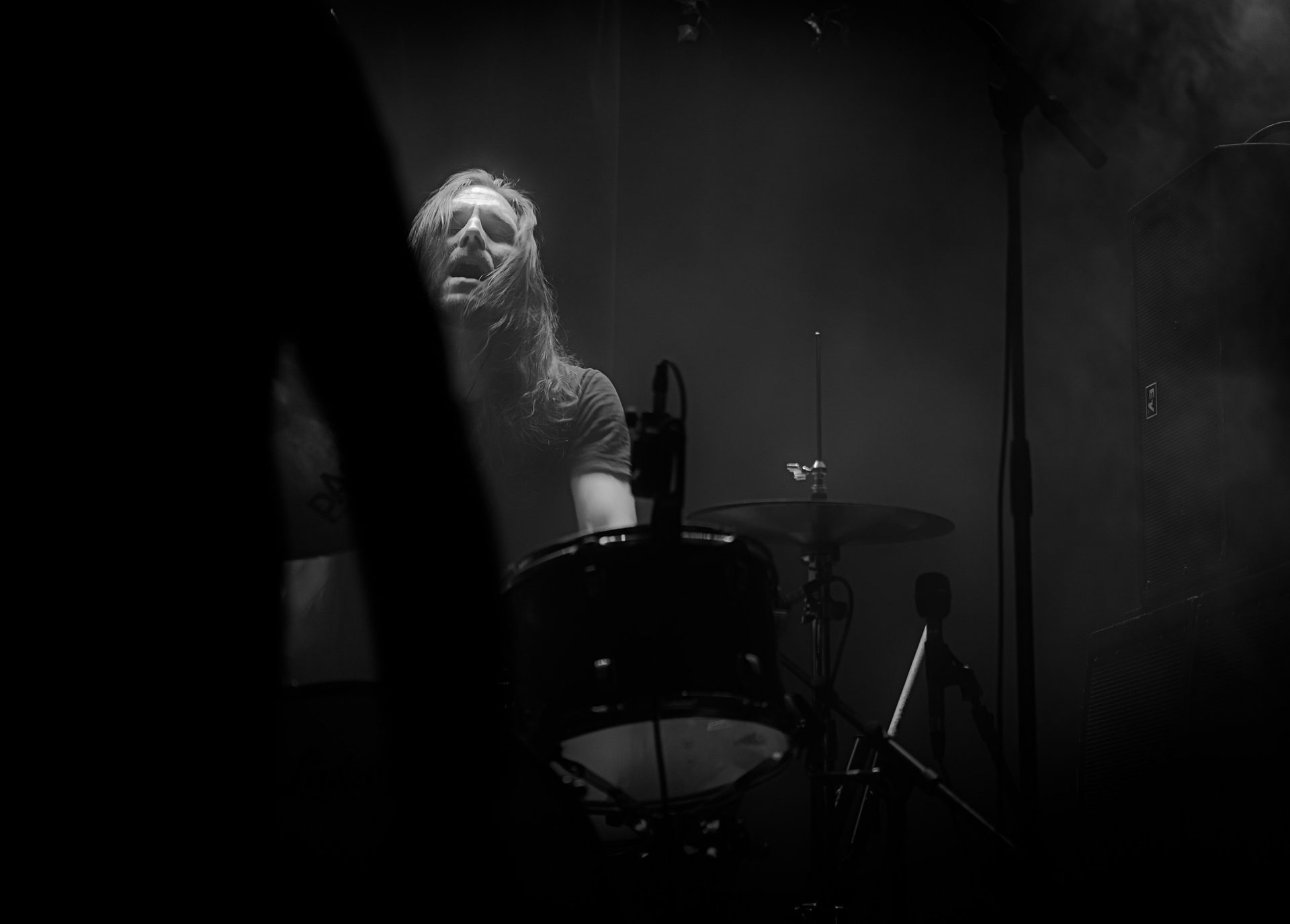
Mind Trap: Oranssi Pazuzu's Prog-Psych Masterpiece "Mestarin kynsi" Won't Let Go

…
There’s no point lying about it: Oranssi Pazuzu’s Mestarin kynsi was one of my most highly anticipated albums this year. The band has been a growing quantity since Kosmonument, their first album to get wider distribution. At the time, they were marketed as a psychedelic black metal band, building the particular substrain of the genre that calcified around Nachtmystium, who at the time were at the peak of their popularity before addiction and malfeasance stole that away. This comparison, however, seemed to do Oranssi Pazuzu favors: sales of their debut and of their excellent split with psych band Candy Cane went up alongside anticipation for their then-next record Valonielu. It, in turn, got additional review placements and even more hype, setting the stage for Värähtelijä, their breakthrough record.
The quality of work that Oranssi Pazuzu had been producing prior to Värähtelijä was by no means a slouch, putting out some of the most interesting records on the most explicitly psych rock and krautrock edge of black metal music. But it felt like they had also plateaued. This meant each release was incredibly consistent, unlikely to let down a long-time listener, but also unfortunately lacked that final little propulsive something.
Värähtelijä had that thing, that unnameable something. Maybe black metal was lowest in the mix of ideas comprising that release, forefronting instead their increasingly sharp longform psych, kraut, and progressive rock chops they’d been honing since the days of Kuolleet Intiaanit (the psych rock band from which Oranssi Pazuzu was born). It wasn’t just that things were, in a manner of speaking, less extreme: the songs on Värähtelijä were simply the best the band had ever written before, with the internal sense of pacing from how long they would repeat a churning and seasick riff — where and how they would transition into other musical ideas was absolutely on fire. That the album functionally had two climaxes, one right before the epic 17+ minute closing psychedelic dirge and one after, didn’t matter — the sense of emotionalist atmosphere and dark burbling color felt more profoundly menacing and ghoulish here than on many more traditional black metal releases.
For Oranssi Pazuzu, more riff-oriented and explicitly metallic black metal can of course still be tremendously dark, but heavy metal itself as far back as the immortal Black Sabbath was born from the evil well of dark psychedelia, a pool from which the genre perpetually drinks, which seems to have a magisterial command over true total psychic darkness that pure heavy metal thunder often fails to topple.
…
…
This arc toward Mestarin kynsi had a slew of other small components, e.g. a progressive death metal band formed by the founder and vocalist of Oranssi Pazuzu called Three Pound Trigger to a side project with Dark Buddha Rising called Atomikylä that released an album and blossomed into Waste of Space Orchestra (who I love). These past four years have been the longest Oranssi Pazuzu have gone between studio full-lengths, but the intervening time was far from empty for the group, producing material that felt less like an expansion of the sonics of their breakthrough record Värähtelijä and more like expansions on its ranging and ferocious spirit, diving deeper into more purely psychedelic and progressive terrain even as they left black metal further and further behind.
It will be a comfort then to fans of Oranssi Pazuzu but not necessarily the various side projects and EPs and splits they have released that Mestarin kynsi certainly feels more like a follow-up to Värähtelijä than anything else. The experiments between then and now seem to have served their purpose, however; this is certainly not a black metal album. Also, musically speaking, this is the furthest the band has dived into progressive rock in their entire career, perhaps even more so than Waste of Space Orchestra’s Syntheosis. You can hear it in the strange and interesting instrumentation choices, featuring prominent flute and the particular synth patches the band use, seemingly having traded quite a few notes from Dark Buddha Rising and their particular use of arpeggiators and the more avant-garde wing of 1970s prog synth ideas. A number of notes feel present, from the arc of fellow former-black metallers-turned-prog rockers Enslaved to krautrock group Can to especially the ultra-black spiritual darkness of prog groups like Univers Zero and fellow Finns Alamaailman Vasarat.
But Oranssi Pazuzu are no longer a young band plucking up stray influences and promising ideas.
They have been running and active for 13 years now, 20 if you count the previous group they have always been so indebted to, and have consistently challenged themselves not just to write better songs but to have more sonic ideas at their beck and call should the time arise. Mestarin kynsi is, just as Värähtelijä before it and Valonielu before that, the current peak of the band’s concept they’ve stuck to since its founding. It is aided by those testing grounds as the places where the players of Oranssi Pazuzu were able to first sit with an instrument like the bevy of new synths they deploy here and really get them right, putting them thoroughly through their paces before committing them to a record that would be more centrally a part of their legacy.
…
…
That sense of intense discipline carries over to the songs themselves, which here find themselves living within a roughly uniform length if only because the band feels like they are the sharpest they’ve ever been. Every band has a sweet spot when it comes to length, some indeterminate thing that arises from a group of players’ natural sense of pacing and development, and here, they have both beefed up the briefer tracks which before felt almost more like interludes as much as they’ve trimmed longer cuts to keep them ferociously tight and engaging.
Mental drift is a problem within psychedelic and progressive music and is a tricky one to fix; music that changes too much can make future riffs feel unworthy of emotionally investing in while too little change can make people check out of a song too early. This is where Oranssi Pazuzu’s live performances both on their own and as Atomikylä or Waste of Space Orchestra come in handy. Like Pink Floyd before them, they didn’t just replicate the songs live but elaborated on them, either by extending or trimming them, clearly taking keen note of audience excitement and intensity. The songs on this record feel impeccably informed by this practice, feeling heart-stoppingly intense from front to back for perhaps the first time in the band’s career. This isn’t to knock the dynamic range of previous records, of course, but instead to reaffirm the point that everything and anything those previous albums were, Mestarin kynsi is better.
Even at nearly an hour in length, the album flies by, dense and vicious and evocative as a novel, as contemplative as the featureless gore of the cover art. I’ve had this promo for perhaps two full months now; I’ve listened to it nearly every day since then, often multiple times a day. I’ve commented before about a spate of records that were battling it out for the number one spot for me this year, and while that number has now expanded, the number then at least was three. One of them was Spectral Lore and Mare Cognitum’s incredible progressive black metal split full-length. Another was Sweven’s immaculate death metal debut. The third was this.
It’s hard to deny that a certain strain of the listenership is right: this isn’t black metal anymore. But this is for the best for Oranssi Pazuzu. The past seven years have seen them put out record after record that was better not only than the one before it but of the whole of their work. By Värähtelijä, they were scraping Hall of Fame territory. On Mestarin kynsi, they exceed it.
…
Mestarin kynsi releases tomorrow via Nuclear Blast. Check out these shots from Oranssi Pazuzu’s stop in Chicago last year:




































…
Support Invisible Oranges on Patreon and check out our merch.
…










